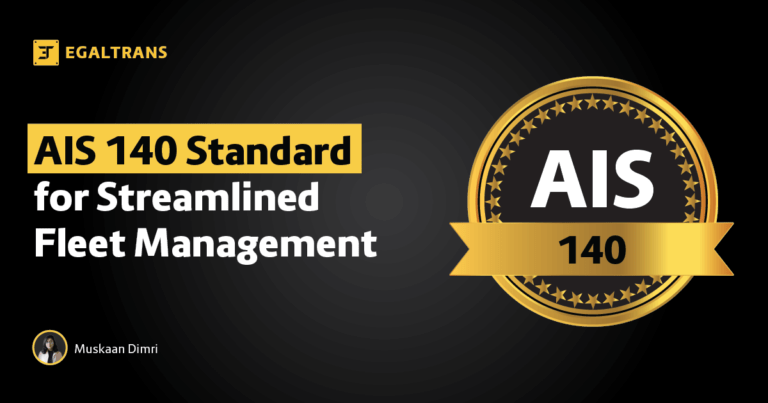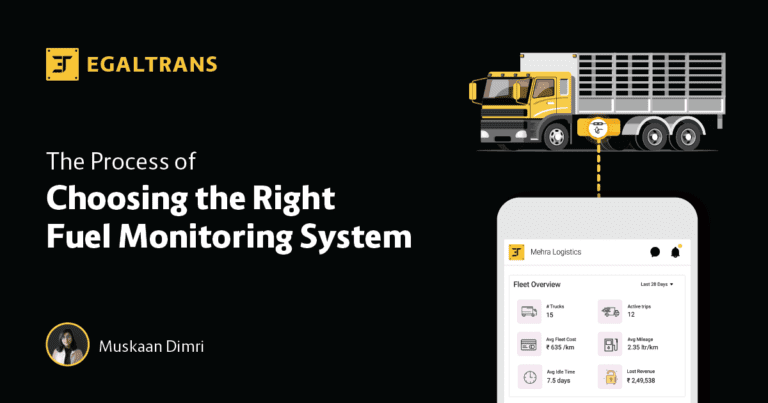The world of trucking is ever-evolving. With the integration of technology and data analytics, fleet owners and managers are now armed with tools that can enhance the operational efficiency of their fleets. One key area that’s gained significant traction in recent years is fuel consumption monitoring. By keeping a keen eye on fuel usage, trucking companies can unlock several benefits, including enhanced driver performance.
Why Fleet Owners must be Monitoring Fuel Consumption?
1. Cost Savings: Fuel is one of the most significant expenses in the trucking industry. By monitoring its usage, businesses can identify areas of waste and inefficiency, leading to cost savings.
2. Environmental Responsibility: Reducing fuel consumption isn’t just about saving money; it’s also about reducing a fleet’s carbon footprint.
3. Improved Maintenance: Unusual fuel consumption can be a telltale sign of mechanical issues. By keeping track, early detection and maintenance can prevent costly future breakdowns.
How Does Fuel Consumption Monitoring Improve Driver Performance?
1. Identification of Driving Behaviors: Monitoring systems can pinpoint behaviors that consume excess fuel, such as rapid acceleration, harsh braking, or prolonged idling. By identifying these habits, drivers can be trained to adopt more fuel-efficient driving techniques.
2. Motivation through Incentive: Trucking companies can set up reward systems for drivers who maintain efficient fuel consumption rates. This not only motivates drivers to be more conscious about their driving habits but also fosters a competitive environment that encourages everyone to do their best.
3. Real-timeedback: Modern monitoring systems provide real-time feedback to drivers. When a driver is aware of their fuel consumption rate, they can adjust their driving behavior on the spot, leading to immediate improvements.
4. Training and Education: With the data collected from fuel monitoring systems, companies can develop targeted training programs. These can be designed to address specific drivers may struggle, ensuring they have the knowledge and skills to drive more efficiently.
Implementing Fuel Consumption Monitoring
- Invest in the Right Tools: The market offers a variety of devices and software designed for monitoring fuel consumption. Choose a system that integrates seamlessly with your current fleet management tools and provides real-time data.
- Educate Drivers: Ensure your drivers understand the importance of fuel efficiency, both for the company’s bottom line and for environmental reasons. Familiarize them with the monitoring tools and how they can benefit from them.
- Regularly Review Data: It’s essential to not just collect data but to analyze it regularly. This helps in identifying patterns, understanding which strategies are working, and where improvements can be made.
- Set Clear Goals and maintain a score: Establish clear, achievable fuel consumption targets for your fleet and individual drivers. This gives them something tangible to strive for. A driver scoring method will help drivers to become competitive and help them to put their best foot out while doing their jobs.
- Celebrate Successes and Incentivize drivers: Recognize and reward drivers who consistently demonstrate fuel-efficient driving behaviors. This not only motivates them but also sets a positive example for others in the fleet
In the fast-paced world of trucking, even the smallest improvements in efficiency can lead to significant savings and enhanced operational success. By monitoring fuel consumption, companies can gain insights into driver performance, helping them make informed decisions and implement strategies that benefit both the company and the environment. As technology continues to advance, it’s clear that data-driven approaches, like fuel consumption monitoring, will play a pivotal role in the future of the trucking industry.







[…] Driver Performance Monitoring: Evaluates driver behavior, including speed, braking, and idling, promoting safer driving practices and reducing operational risks. […]